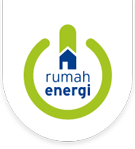Workshop on Increasing Productivity of Dairy Farmers and Fresh Milk Cooperatives
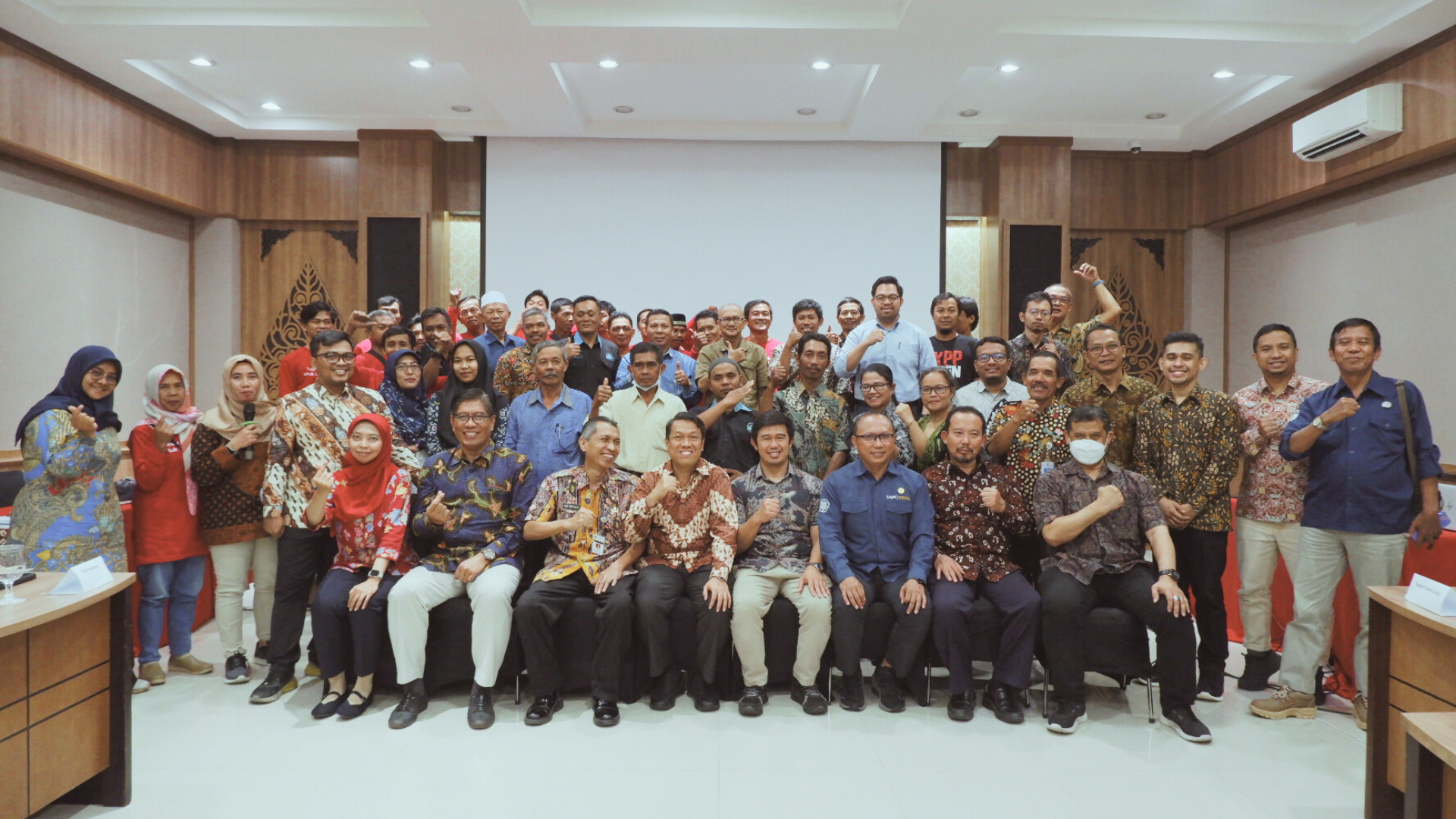
The activity entitled Workshop on Increasing Productivity of Dairy Farmers and Fresh Milk Cooperatives was held on July 26, 2024, in Sleman Regency, Yogyakarta. There were two main agendas for this activity, namely workshops and field visits to farmers’ pens and Samesta farm.
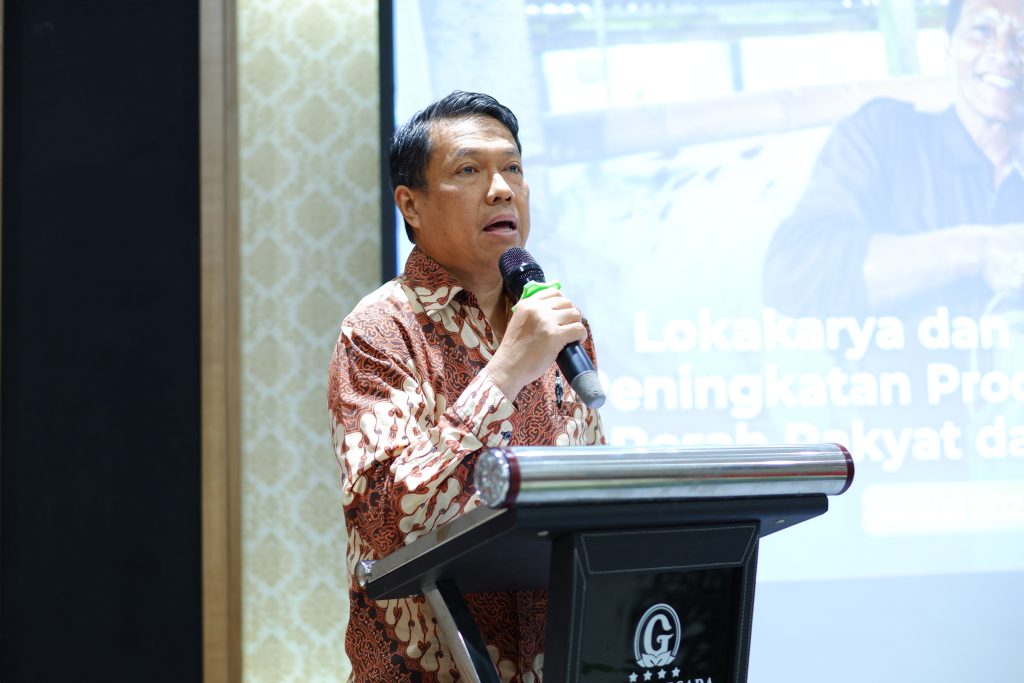
The workshop began with remarks by the Government and External Scientific Affairs Director of Danone Indonesia, Rachmat Hidayat. He conveyed the history of Sarihusada Generasi Mahardhika (PT SGM), one of the units that produces nutritional products for children, pregnant women, and breastfeeding mothers. This is related to Danone Indonesia’s commitment to realizing the program’s support for the common people, as well as increasing direct contributions to science, community welfare, and small farmers.
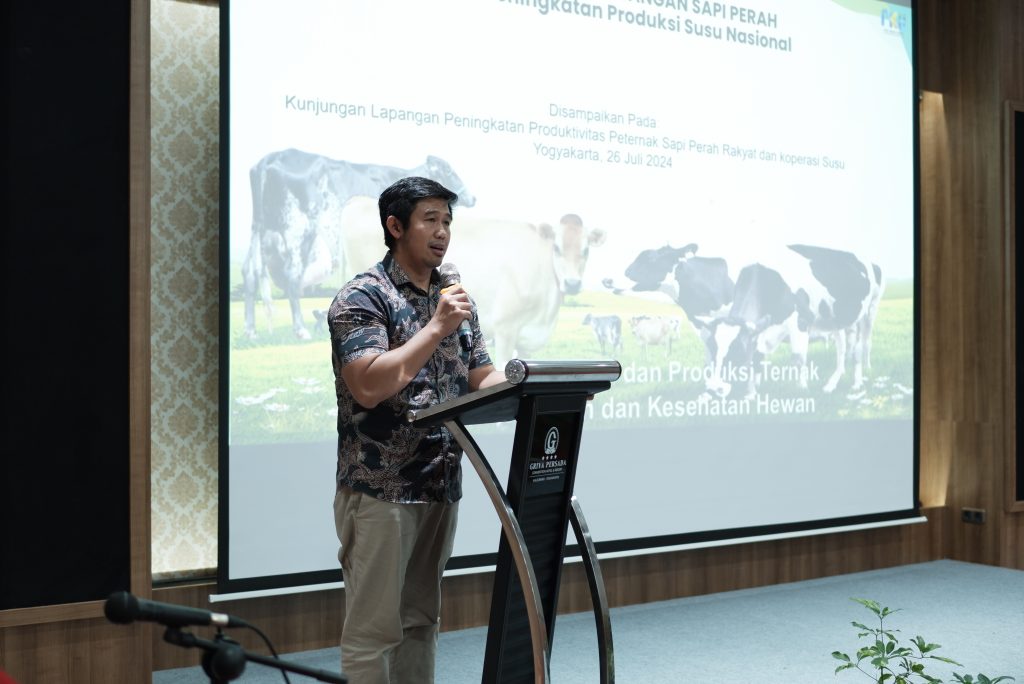
Dr. Argi Arigis Spt.MP representing the BITPRO Directorate of the Ministry of Agriculture also supported the process of processing dairy cow milk production. “Dairy milk production needs to be continuously optimized in its processing because, in the last few years, it has tended to stagnate or even decline due to the FMD (Foot and Mouth Disease) outbreak. Therefore, the government can optimize the process by preparing an integrated dairy milk processing cluster,” said Dr. Argi.
In supporting these efforts, Yayasan Rumah Energi (YRE) collaborates with PT SGM, Danone Ecosystem, and PRISMA through the Local Milk Sourcing (LMS) program to contribute to increasing the productivity and quality of milk from local dairy farmers.
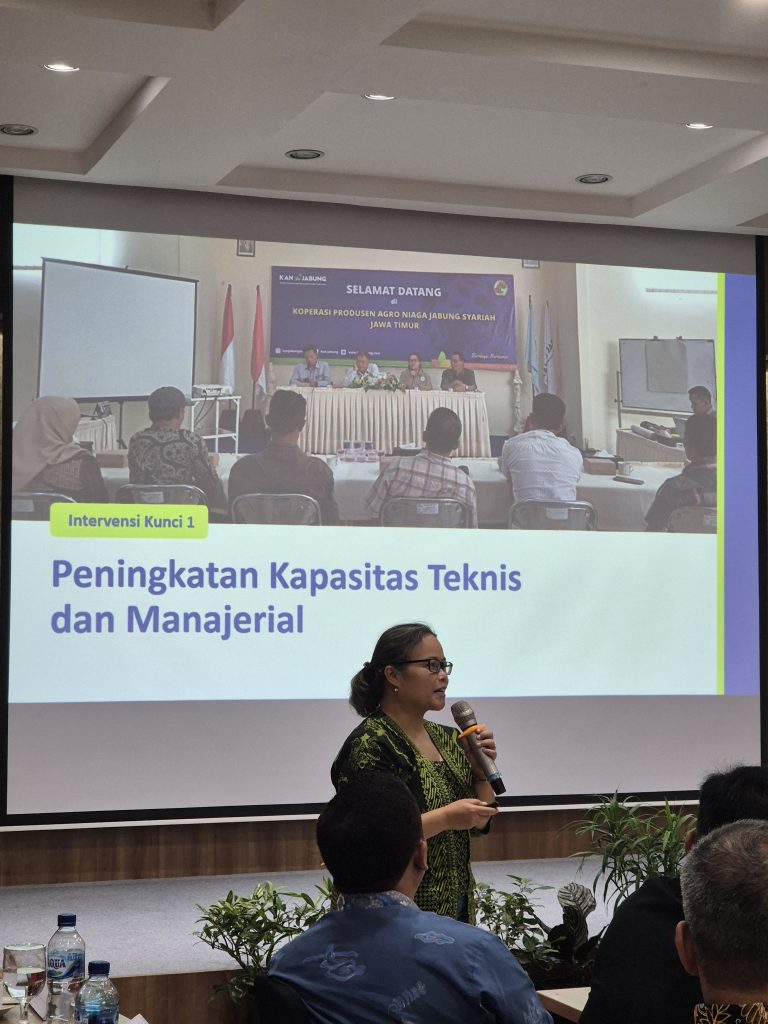
YRE Program Manager Ruth Subodro said that to increase technical and managerial capacity, YRE has created various practical modules for dairy farmers and cooperatives so that there is an increase in scientific capacity, cooperative management, and optimizing facilities and infrastructure to maintain the quality of dairy milk. “These modules include the Good Dairy Farming Practice Module, Feed Management Module, Animal Welfare and Housing Module, Reproduction and Artificial Insemination, Animal Health, and modules related to recording. In addition, recording is also something that needs to be considered as a form of optimizing livestock management by small farmers and recording of milk production and quality by cooperatives” said Ruth.
Fresh Milk Manager of PT SGM Feryan Fernanda added that the LMS program that had just started was affected by the FMD outbreak. This is a special concern to redesign the strategy of the program in increasing the productivity of dairy cows and increasing the production of milk per cow which tends to be stagnant in terms of data, but in terms of quantity and quality, it has increased.
There is also the development of research conducted by YRE on improving the quality of milk, namely related to the use of Gama Umami grass for cattle feed, data show that Gama Umami grass has 10% more biomass than conventional grass. In addition to grass, there are other trials conducted, namely on Jersey Cows on people’s farms, efforts to minimize livestock waste through home biogas installations, and biogas construction financing schemes.
The workshop activities were also filled with testimonials from farmers and cooperative representatives. Mr. Darmono from Boyolali farmers said that the program implemented by YRE had a significant impact on farmers, which of course was accompanied by assistance from YRE and PT SGM on the management of dairy cow productivity and cooperative management for farmers.
Another testimony was delivered by Mr. Bagio from Kaliurang. He revealed that the cooperative that he had been running for a long time was always constrained by the scope of the RAT, as well as an unclear structure and this had an impact on activities in the cooperative. YRE also assisted in reviving the Kaliurang UPP, and in 2023 a new management was formed, and a new legality, so that programs could run again.
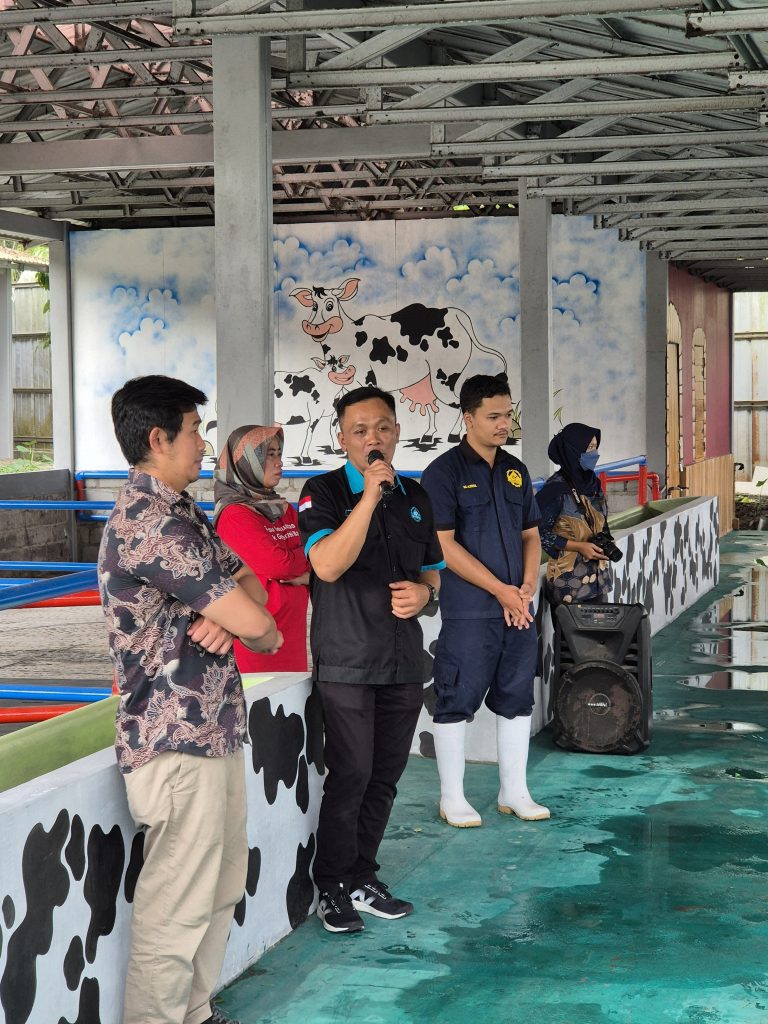
Furthermore, Mr. Ruslan who represented the Samesta Cooperative also delivered his testimony, “When the FMD outbreak hit, dairy cow milk production increased by 50%, thanks to the Rumah Energi Foundation program, it became a space for the growth of new enthusiasm for farmers who are members of the cooperative, all of whom received training and assistance in terms of knowledge and also infrastructure as a form of increasing productivity,” said Mr. Ruslan.
Prof. Aris, a representative from the Faculty of Veterinary Medicine, Universitas Gadjah Mada (UGM), also expressed his pride in being involved in the LMS program, “This is a good momentum after the outbreak of FMD in animals, and UGM has taken part in minimizing the spread of the FMD outbreak with mitigation in the form of vaccination, which has an impact on the productivity of dairy milk after FMD,” said Prof. Aris.
The activity was continued with a field visit to Mr. Wahudi Boyong’s livestock pen to see how the livestock management process is carried out, and to explain the advantages and obstacles faced. The next visit was to Semesta Farm Plosokerep. Visitors were invited to see how Mbah Kidi maintains Jersey Cows. Visitors were also invited to visit the Cooling Unit and Mas Purnomo explained the capacity, procedures, and procedures for handling milk, including the quality tests carried out. Furthermore, at the rearing location, Mr. Ruslan explained the purpose of building the rearing, which is to help farmers get quality cattle seeds.
The activity was closed by Rachmat Hidayat who expressed his gratitude to the farmers and cooperatives for their hard work and contribution to developing dairy farming and invited stakeholders or the government, academics, and the media to work together to support efforts to increase the productivity of dairy farmers and fresh milk cooperatives.
Written by: Ruth Subodro & Mohammad Noufal
Edited by: Fauzan Ramadhan
